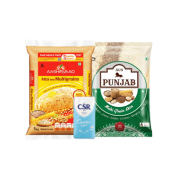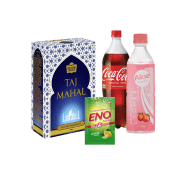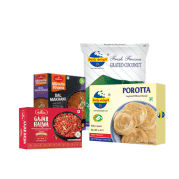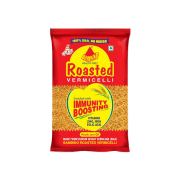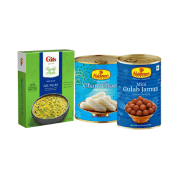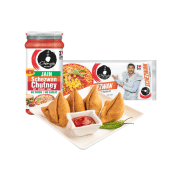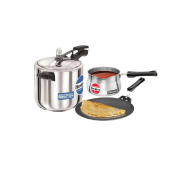 Free shipping on orders $100+
Free shipping on orders $100+
-
 Riverstone NSW 2765
Riverstone NSW 2765
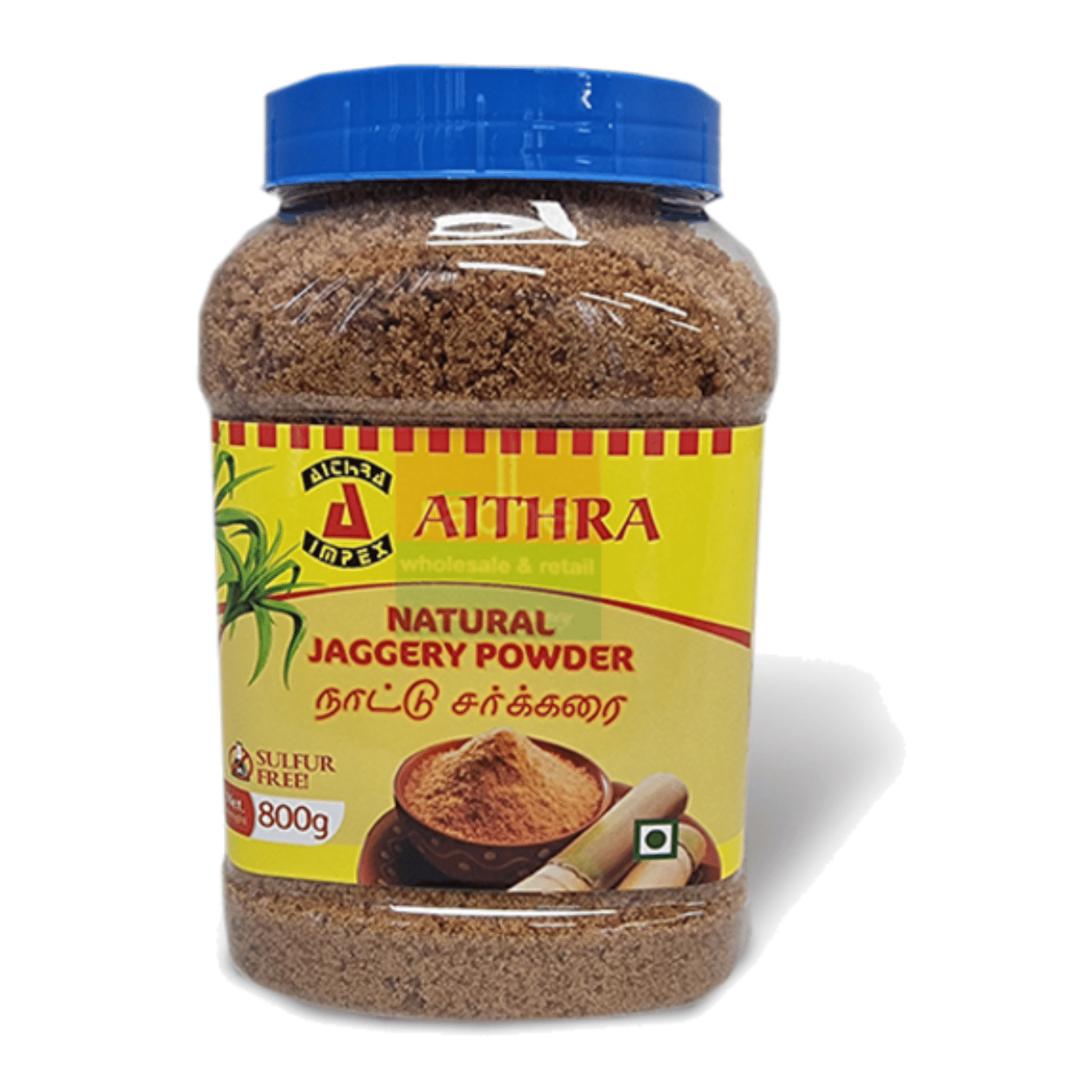

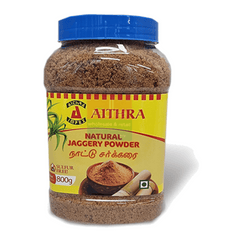
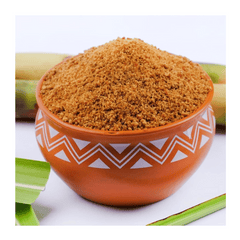
All Products
Aithra Natural Jaggery Powder
- $5.99
- $5.99
- Unit price
- per
-

Fresh Healthy Vegetables & Fruits
-

Delivered to Your
Doorstep -

Neighborhood Convenience
Secured checkout with
Couldn't load pickup availability
Jaggery powder is a form of unrefined sugar made from the sap of sugarcane or date palms. It is a traditional sweetener that’s popular in many parts of South Asia, Africa, and the Middle East. Jaggery is often referred to as a "natural" or "healthier" alternative to white sugar, though it is still a type of sugar and should be consumed in moderation.
Characteristics of Jaggery Powder:
- Color: Jaggery powder has a rich golden-brown to dark brown color, depending on the type of jaggery and the method of production.
- Flavor: It has a warm, caramel-like taste with slight molasses undertones. The flavor is much more complex than refined sugar, which gives it an edge in many traditional and regional recipes.
-
Texture: The powder form makes it easy to measure, dissolve in liquids, and use in cooking or baking. The texture can be coarse or fine depending on the brand or how it is processed.
Log inSign up
ChatGPT said:
You said:
ChatGPT said:
You said:
ChatGPT said:
You said:
ChatGPT said:
2/2You said:
ChatGPT said:
You said:
ChatGPT said:
You said:
ChatGPT said:
You said:
ChatGPT said:
You said:
ChatGPT said:
You said:
ChatGPT said:
Returns Policy
You may return most new, unopened items within 30 days of delivery for a full refund. We'll also pay the return shipping costs if the return is a result of our error (you received an incorrect or defective item, etc.).
You should expect to receive your refund within four weeks of giving your package to the return shipper, however, in many cases you will receive a refund more quickly. This time period includes the transit time for us to receive your return from the shipper (5 to 10 business days), the time it takes us to process your return once we receive it (3 to 5 business days), and the time it takes your bank to process our refund request (5 to 10 business days).
If you need to return an item, simply login to your account, view the order using the "Complete Orders" link under the My Account menu and click the Return Item(s) button. We'll notify you via e-mail of your refund once we've received and processed the returned item.
Shipping
We can ship to virtually any address in the world. Note that there are restrictions on some products, and some products cannot be shipped to international destinations.
When you place an order, we will estimate shipping and delivery dates for you based on the availability of your items and the shipping options you choose. Depending on the shipping provider you choose, shipping date estimates may appear on the shipping quotes page.
Please also note that the shipping rates for many items we sell are weight-based. The weight of any such item can be found on its detail page. To reflect the policies of the shipping companies we use, all weights will be rounded up to the next full pound.
Nam tempus turpis at metus scelerisque placerat nulla deumantos solicitud felis. Pellentesque diam dolor, elementum etos lobortis des mollis ut risus. Sedcus faucibus an sullamcorper mattis drostique des commodo pharetras loremos.Donec pretium egestas sapien et mollis. Pellentesque diam dolor cosmopolis etos lobortis.
- Comodous:
- Comodous in tempor ullamcorper miaculis
- Mattis laoreet:
- Pellentesque vitae neque mollis urna mattis laoreet.
- Divamus de ametos:
- Divamus sit amet purus justo.
- Molestie:
- Proin molestie egestas orci ac suscipit risus posuere loremous
Our Best Selling Products
- From $4.99
- From $4.99
- Unit price
- per
- From $4.99
- From $4.99
- Unit price
- per
- From $4.99
- From $4.99
- Unit price
- per
- From $4.99
- From $4.99
- Unit price
- per
Recently Viewed Products
- Choosing a selection results in a full page refresh.
 Track your orders
Track your orders
